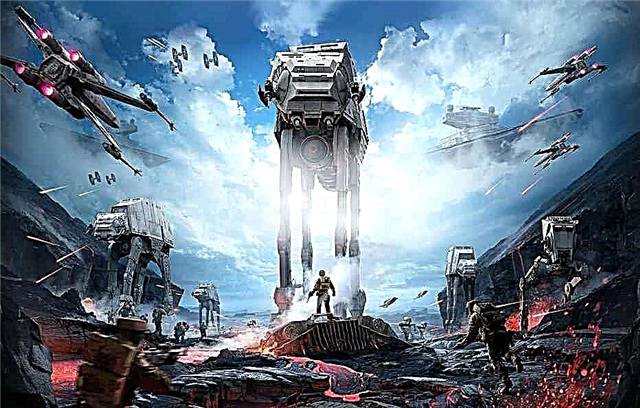Many cities, countries, regions and provinces around the world have undergone name changes for various reasons. The name is often changed for political or national reasons, for example, when the traces of colonies disappear or when they want to express the strength of the government's ideology. A state may change its name solely to honor its memory, especially as a sign of respect for an influential person or an important event in the history of the country. A country can also change its name to improve its image or to erase adverse events and memories from history. Here are ten countries that have successfully changed their name.
10. Persia / Iran
Historically, Iran has been referred to as Persia in the Greek annals. The territory in which modern Iran is now located was captured by the Persians, who founded the Persian Empire. In 1935, the Iranian government, under pressure from countries with which they had diplomatic relations, changed its name from Persia to Iran. The proposal to change the name was put forward by the Iranian ambassador to Germany, who was influenced by Nazis. The countries agreed and the name Iran began to appear in official documents. Also, some regions did not like the innovations, but the decision to make the names Persia and Iran equal changed the attitude of people to this situation and today the country is calmly called Iran.
9. Kampuchea / Cambodia
Cambodia changed its name several times, especially when the new government wanted to erase old tracks. From 1953 to 1970, the state was called the Kingdom of Cambodia. From 1970 to 1975 it was called the Khmer Republic. Influenced by communist rules, from 1975 to 1979 the country was called Democratic Kampuchea. Due to the change of power in the United Nations from 1983 to 1993, the state was called the People's Republic of Kampuchea. After the restoration of the monarchy in 1993, Cambodia was renamed the Kingdom of Cambodia. The Khmers used to call themselves Kampucheans, which means "Descendants of Prince Kambu". The name Cambodia comes from the western mispronunciation of Kampuchea.
8. Burma / Myanmar
In Russian, Myanmar is familiar in two versions: Myanmar proper and Burma. The country's name changed first from Burma to Myanmar, and in the end it became the Republic of the Union of Myanmar, which caused a lot of controversy. The military junta changed its name in 1989, but a year later several people were killed in order to suppress popular uprisings. The name change has been recognized by several states, including France, Japan and the UN. However, the US and UK do not recognize the decision of the unelected authorities.
7. Transjordan / Jordan
Transjordan was recognized as a state in September 1922 and was under British protectorate until 1946, when it was granted independence. In May 1946, the government changed its name to the Hashemite Kingdom of Jordan after the adoption of the London Treaty. Jordan has been referred to as the Hashemite Kingdom since the reign of the Hashemite dynasty. I now use Hashemite in Jordan to mean the royal family, and the name Jordan refers to the river on which Jesus was baptized.
6. Abyssinia / Ethiopia
The Ethiopian Empire, also known as Abyssinia, occupied the northern part of what is now Ethiopia. The origin of the Solomon dynasty by the Abyssinians made it possible in 1270 to call the whole country Abyssinia. The Abyssinians held power continuously until the 20th century, controlling more and more parts of Ethiopia. Abyssinia changed its name to Ethiopia X Ethiopian King Haylesias during World War II. Some scholars argue that Ethiopia was called so from the fourth century, the name Abyssinia was spread by the Arabs and that the territory of Ethiopia is larger than that of Abyssinia.
5. Bechuanaland / Botswana
Botswana was formerly known as the British Protectorate of Bechuanaland. The name Bechuanaland was adopted by the UK on March 31, 1885, when they recognized the country as one of their territories. The land was under the Bechuanaland Protectorate until independence on September 30, 1966. The name Botswana was adopted after independence. This name comes from the word "Tswana" - the largest ethnic group in the country - and also from Vechuana, as in the old spelling.
4. Ceylon / Sri Lanka
For all its time, Sri Lanka has changed its name several times. From 1815 to 1948 Sri Lanka, under pressure from Great Britain, was called Ceylon. Ceylon comes from the transliteration of Ceylao, the country's past name when it was a Portuguese colony. The name Sri Lanka originated during the advancement of independence in the early 20th century. It was invented by the Marxists Lanka Sama Samaja Party. The name Republic of Sri Lanka was officially recognized in 1972 and in 1978 it was changed to the Democratic Socialist Republic of Sri Lanka.
3. Zaire / Democratic Republic of the Congo
The Democratic Republic of the Congo has had several official names such as Free State of the Congo, Belgian Congo, and Leopoldville. In 1960, the state gained the right to independence and became the Republic of the Congo, named after the Congo River. From 1965 to 1971, the country was renamed the Democratic Republic of the Congo and in 1971 President Mobutu Sese Sex named it the Republic of Zaire. But the Supreme National Congress decided to change the name back to the Democratic Republic of the Congo in connection with the fall of Mobutu in 1977.
2. Upper Volta / Burkina Faso
Botswana, formally known as Upper Volta, changed its name under the direction of President Thomas Sankar in August 1984. He chose the name Burkina and Faso taken from two official languages. The country received the name Upper Volta from the French colonialists because of the Volta River, which crosses the country. Burkina means "honest people" in Moore and Faso means Patronymic in Gyula. The two words together mean "the land of honest people."
1. Dahomey / Benin
Dahomey was a powerful pre-colonial kingdom that was located in West Africa, where the Republic of Benin is now. The kingdom also covered the territory of the modern country of Togo and parts of southwestern Nigeria. The kingdom of Dahomey was known for its skillful female warriors, who served as the king's personal guard. The country changed its name from Dahomey to the Republic of Benin fifteen years after independence in 1975 under the leadership of Mathieu Kereku. The decision to rename the country is equated with the ideologies of Marxism-Leninism, which Kereku adhered to.
Several non-existent countries that may form in the coming years:



